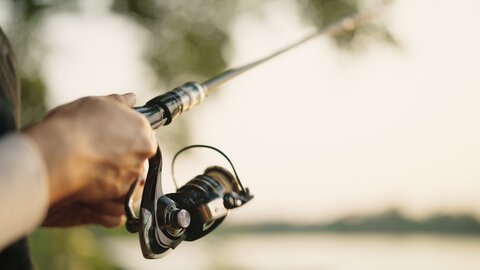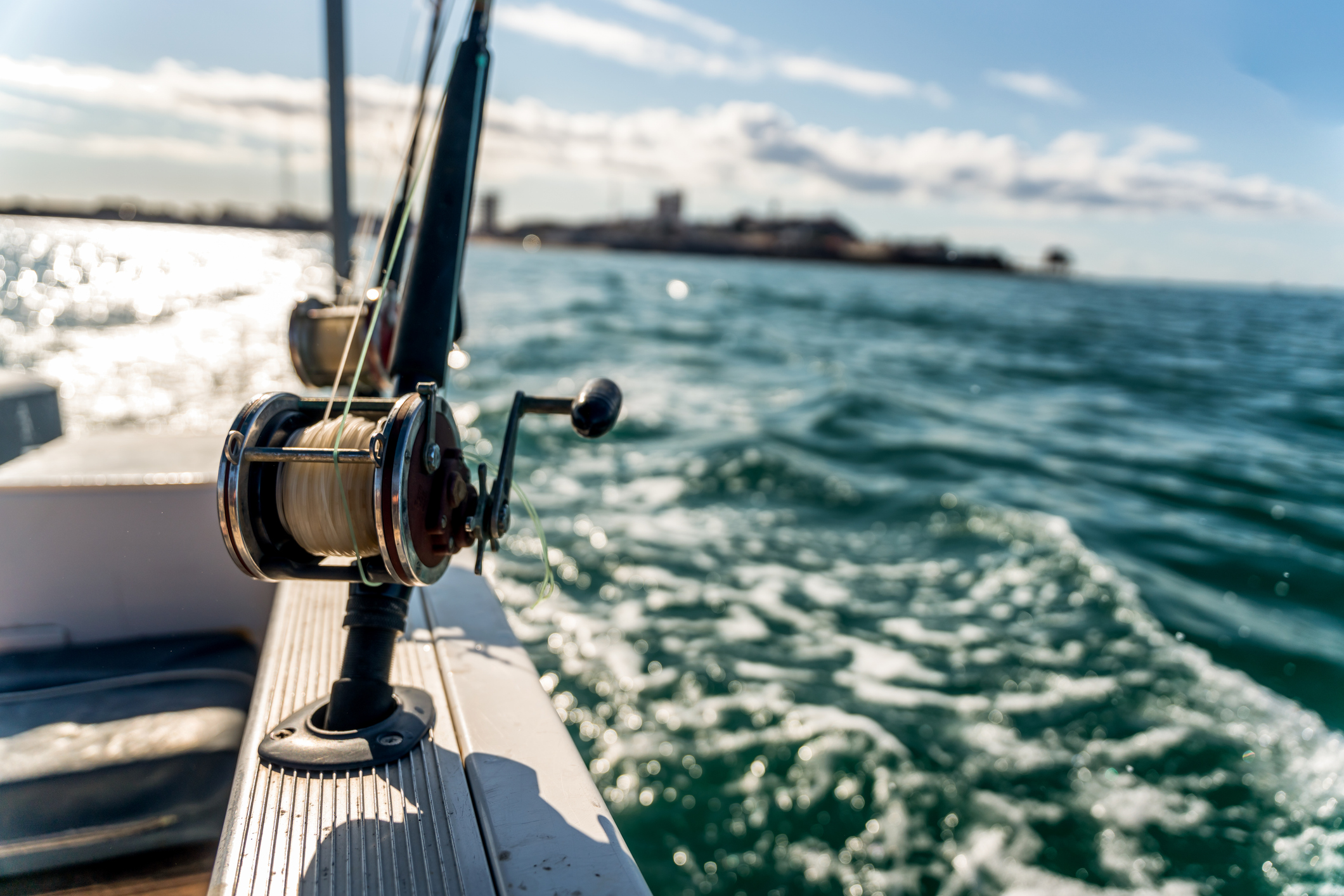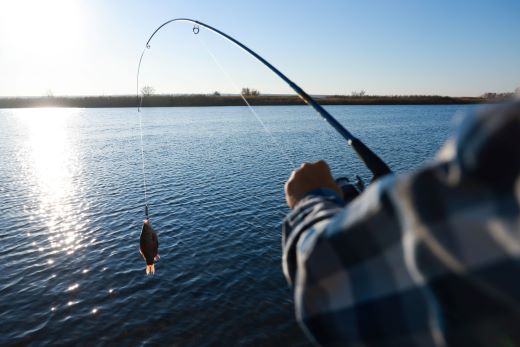So, does wind affect fishing? According to an old fishing proverb, “Wind from the east, fish bite the least; wind from the west, fish bite the best; wind from the north, few sailors set forth; wind from the south blows bait in their mouth.” And believe it or not, it’s mostly true.
While the wind direction doesn’t necessarily affect fishing conditions, the reason behind the wind direction does. Keep reading as we discuss how wind affects fishing in today’s blog post.
Does Wind Direction Affect Fishing?
Does wind direction affect fishing? As mentioned, the wind direction doesn’t necessarily dictate fishing conditions. However, the reason behind the wind direction does! Here’s a quick overview:
East Winds
East winds usually occur after a cold front, bringing high barometric pressure, cooler temperatures, and bluebird skies. Generally, fish don’t like the change in pressure, as it affects the air in their swim bladder. Many fish also dislike bright sunshine. These two features, in combination, make the fish less likely to bite during an east wind.
West Winds
Generally, west winds mean a storm is approaching. Fish can sense the changing conditions, prompting many of them to go on a feeding frenzy. And for that reason, many fishermen prefer to fish during west winds!
South Winds
South winds usually blow during warmer periods (in the spring and fall) and stable periods in the summer. Both of these are relatively ideal fishing conditions!
North Winds
North winds are also associated with cold fronts, which makes them unfavorable for fishing.
7 Tips for Fishing in Windy Conditions
Don’t let windy days deter your fishing adventures! Instead, follow these tips to make the most of windy fishing excursions:
1. Seek Shelter
While it might not be your usual spot, seeking shelter is a great way to meet the fish where they are. Look for places with wind-blocking features like rock walls or sheltered bays. You could also head inland to fish in shallower water or at estuaries.
2. Go Shallower
Wind will often prompt fish to feed closer to the surface. Therefore, bottom set-ups are rarely necessary. If you opt for one, note that the wind will likely push the bait and the fish into shallower waters.
3. Adjust Your Gear
Using a lighter line makes casting easier in windy conditions. And because you’re likely heading inland or seeking shelter (see above), a lighter line will help you capture those smaller fish.
If you’re still fishing with bottom bait, increase the weight on your jigheads. Because some lines tend to bow in windy conditions, losing contact with the lure is easier. However, heavier jigheads combat that.
4. Switch Up Your Routine
Stick to marinas and jetties on windier days instead of casting your line into choppy, shallow water. Cast close to pilings or beneath docked boats, as they offer plenty of shelter for the fish to feed. Additionally, steer clear of any exposed sandbars or open beaches.
Learn More About Fishing Boats
5. Cast With The Wind
If you can, cast your rod on the same side of the boat from which the wind is coming. That way, you’ll get as much wind protection as you can.
6. Don’t Be Afraid to Anchor
As many experienced anglers know, boat control in windy conditions can sometimes be challenging. (And if you’re focused on keeping your rig stable, your fishing abilities usually fall to the back burner.) Therefore, anchoring is a great way to stabilize your rig in windy conditions.
7. And Don’t Be Afraid to Fish From the Shore
Finally, don’t be afraid to fish from the shore in windier conditions. If the wind is at your back, it’ll boost your casting distance. And if the wind isn’t working with your artificial lures, you can throw some live bait out on a sinker.
Best Lures to Use in Wind
If fishing with artificial lures, opt for something you can cast out and retrieve immediately. One of our personal favorites? The Johnson Silver Minnow Spoon. Not only does this wind cast well in windy conditions, but it actually cuts through wind blowing into your face.
The 5-inch Gold Digger BOMBER is also an excellent lure for windy days, as its large profile sends massive vibrations and draws the attention of the fish. (On particularly windy days, the fish use those vibrations to locate their next meal.)
How Does Wind Affect Fishing?
So, how does wind affect fishing? While east winds usually occur during a cold front, west winds often mean a storm is approaching. And both of these will usually impact your fishing endeavors!
However, there’s no reason to let the wind halt your fishing expedition. Follow these seven tips for fishing in windy conditions, and we’re confident you’ll reel in some good ones!


